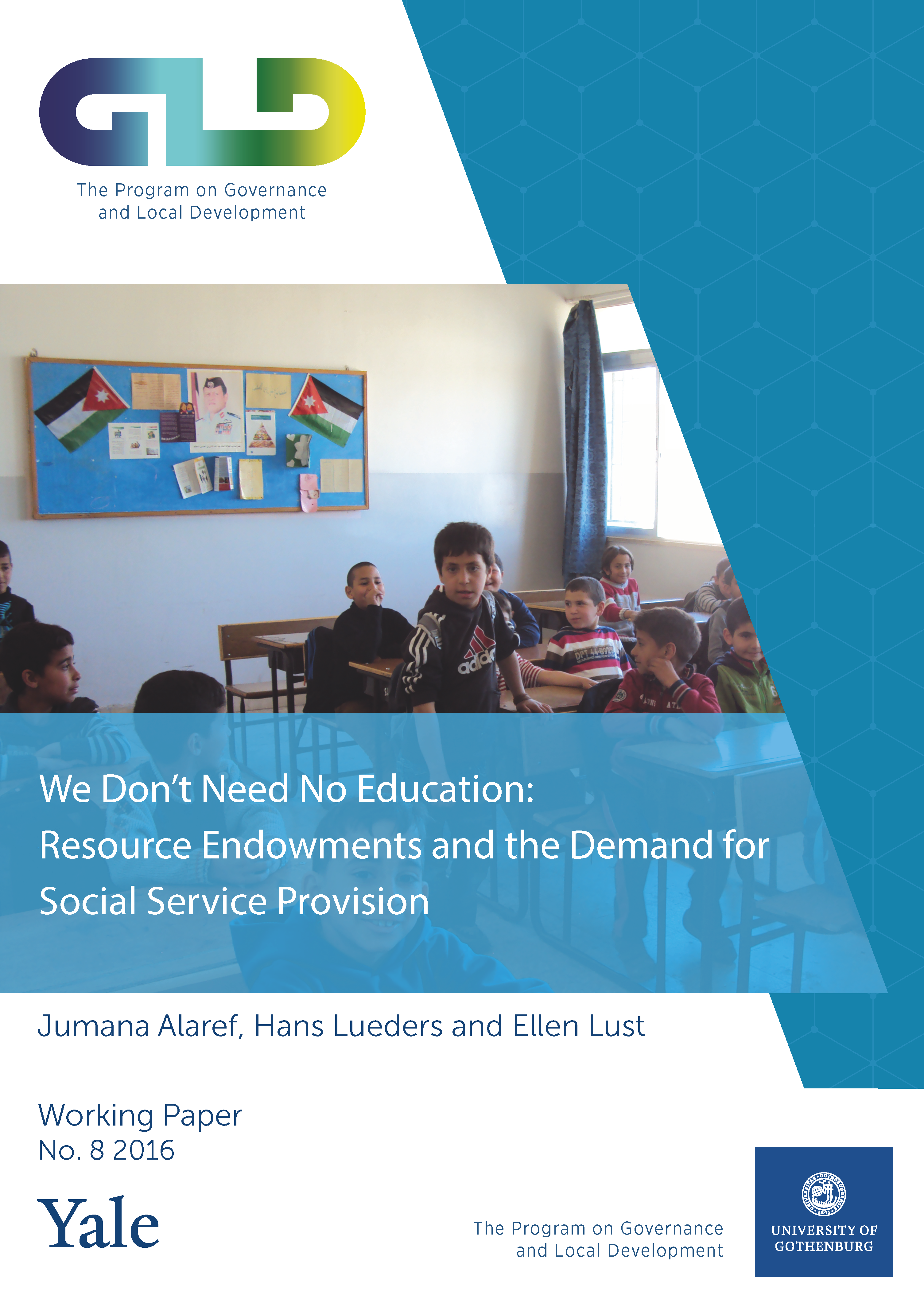No.8 We Don't Need No Education: Resource Endowments and the Demand for Social Service Provision
Jumana Alaref, Hans Lueders, and Ellen Lust
Abstract
Conventional wisdom holds that citizens demand high quality service provision across all countries and sectors, and as a result, attributes variations in education, health and other human development outcomes to supply-side factors. However, this paper challenges this assumption. We argue that such outcomes are the result of both supply- and demand-side factors, and thus should not be viewed as reflecting variation in service delivery. Moreover, citizen demand for services varies across both countries and sectors, and it does so systematically. We demonstrate the importance of demand-side factors through an analysis of the impact of natural resource rents on health and education outcomes. While citizens in rentier and non-rentier states both demand high quality health services, those who benefit from oil and gas rents are less likely to need and demand high quality education. This is because citizens in rentier economies can obtain a high standard of living regardless of the quality of education they attain, but oil rents have no systematic impact on their demand for good health. We support this argument through cross-sectional analysis of national-level health and education outcomes in nine countries in the Middle East and North Africa. Doing so highlights the importance of taking citizens’ demand for services seriously, draws attention to problems of using health and education outcomes as measures of service delivery, and extends the literature on rentier states.
